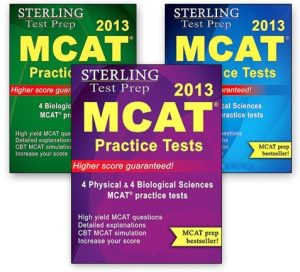
In today’s technology-driven world, digital marketing has become an essential aspect of any successful business strategy. With the constant advancements in technology, mastering digital marketing is crucial for anyone looking to excel in the tech industry. Whether you’re just starting or aiming to become an expert, this comprehensive guide will take you from a novice to an industry leader in the digital marketing realm.
Understanding the Basics: What is Digital Marketing?
Before diving into the depths of digital marketing, it is essential to grasp its fundamentals. In simple terms, digital marketing is the practice of promoting products or services through various digital channels, such as websites, social media platforms, email campaigns, search engine optimization (SEO), and more.
Why is Digital Marketing Important?
In an age where the majority of consumers are online, businesses need to establish a strong online presence to reach their target audience effectively. With digital marketing, businesses can leverage a wide array of strategies to increase brand visibility, generate leads, drive sales, and foster long-term customer relationships.
The Key Components of Digital Marketing:
1. Search Engine Optimization (SEO):
SEO is the process of optimizing a website to improve its visibility in search engine results. By incorporating relevant keywords, creating engaging content, and building quality backlinks, businesses can improve their organic search rankings and attract more organic traffic.
2. Pay-Per-Click Advertising (PPC):
PPC advertising allows businesses to place ads on various platforms, and they only pay when users click on their ads. Platforms like Google Ads provide businesses the opportunity to target specific keywords and demographics, ensuring their ads reach the right audience.
3. Content Marketing:
Content marketing focuses on creating and distributing valuable, relevant, and consistent content to attract and engage a specific target audience. By publishing blog posts, articles, videos, and other forms of content, businesses can establish their authority in their industry and build a loyal customer base.
4. Social Media Marketing:
Social media marketing involves using social media platforms like Facebook, Instagram, Twitter, and LinkedIn to connect with potential customers, build brand awareness, and drive website traffic. By engaging with followers, sharing valuable content, and running targeted advertising campaigns, businesses can achieve significant results.
5. Email Marketing:
Email marketing is an effective way to nurture leads and build lasting relationships with customers. By sending personalized, relevant emails to subscribers, businesses can keep their brand top-of-mind, promote new products or offers, and drive increased conversion rates.
Becoming an Expert in Digital Marketing:
1. Continuous Learning: Stay updated with the latest trends, tools, and strategies in digital marketing through research, online courses, and industry conferences. Keep learning and adapting your approach to stay ahead of the competition.
2. Analyze Data: Utilize various analytic tools to measure the performance of your digital marketing efforts. Analyze data to identify trends, insights, and areas of improvement to optimize your campaigns continuously.
3. Develop a Comprehensive Strategy: Create an integrated digital marketing strategy that aligns with your business objectives. Consider your target audience, budget, and resources to allocate efforts effectively across different channels.
4. Build a Strong Online Presence: Establish a professional website, optimize it for search engines, create engaging content, and leverage social media platforms to build a robust online presence. Consistently monitor and engage with your audience to foster trust and credibility.
5. Stay Customer-Centric: Digital marketing is all about connecting with and understanding your customers. Tailor your messaging, segment your audience, and deliver personalized experiences to create long-term customer relationships.
6. Network and Collaborate: Engage with industry professionals, join relevant communities, and collaborate with influencers to expand your knowledge, gain exposure, and amplify your digital marketing efforts.
Conclusion:
Transitioning from a novice to an expert in digital marketing requires a combination of knowledge, experience, and adaptability. By understanding the basics, mastering various digital marketing strategies, continuously learning, and staying customer-centric, you can transform yourself into an industry leader. Embrace the ever-evolving world of digital marketing and pave your journey towards expertise.

